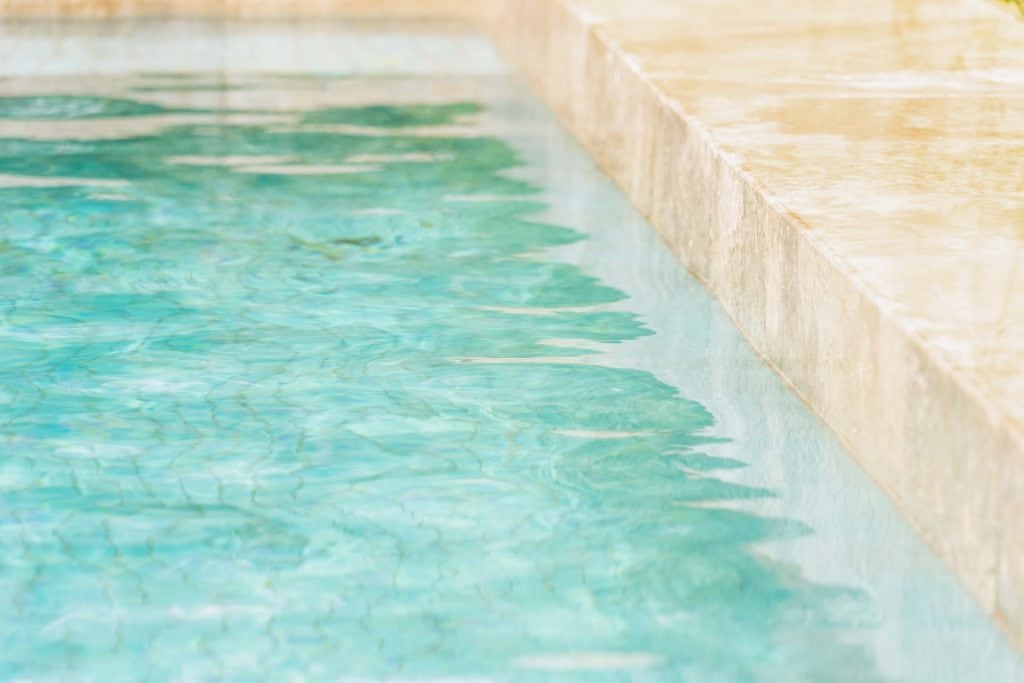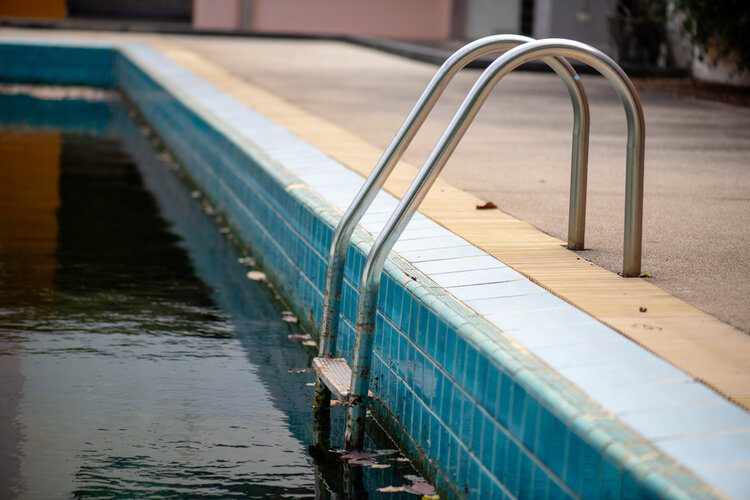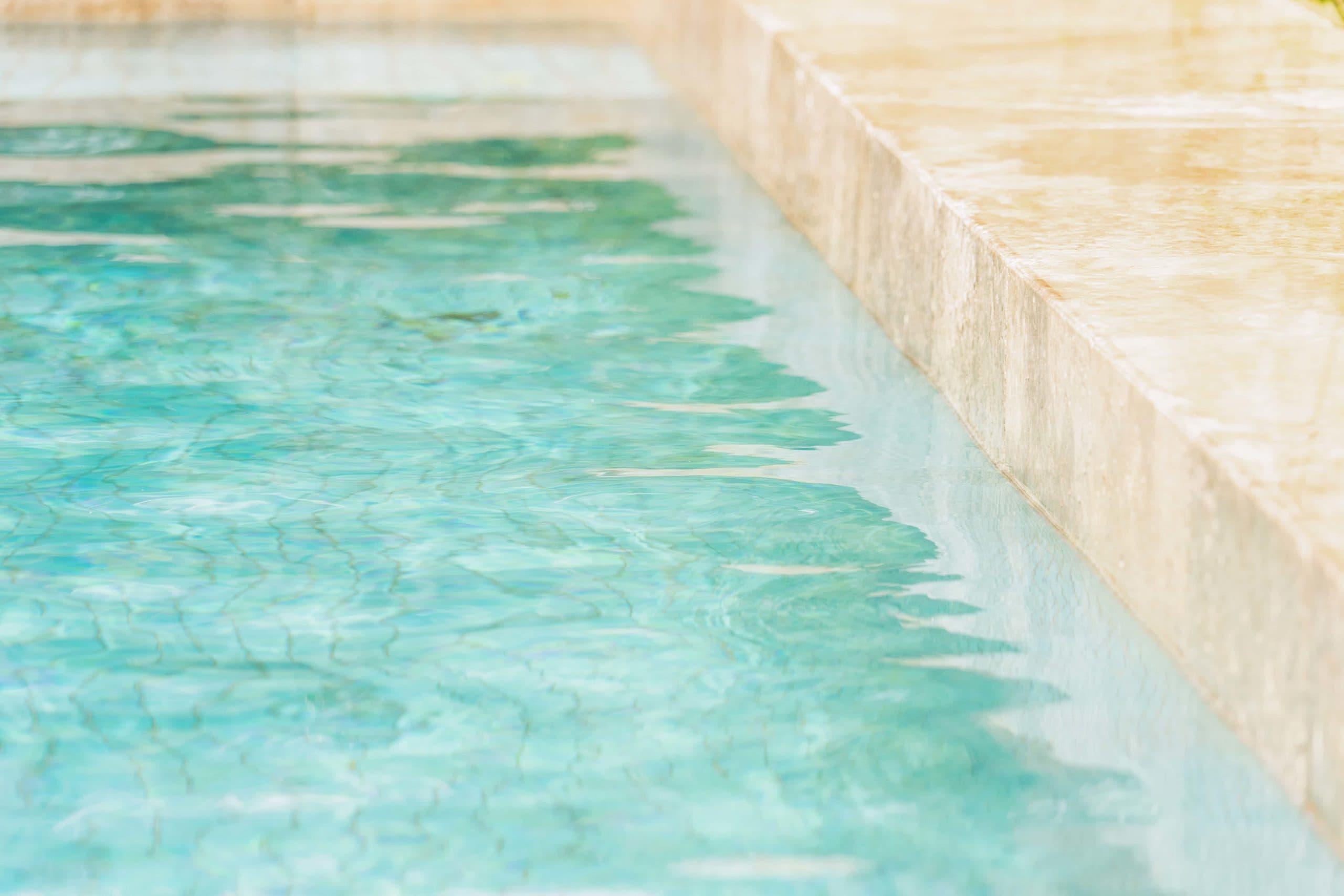Are There Any Alternatives to Using Pool Stabilizer?
-
Pete Ortiz
- Last updated:

Pool stabilizer is likely something you were told that your pool needs. Hopefully, you have been putting it in each week as part of your routine maintenance.
With the cost of pool chemicals and the time requirements of weekly maintenance, many pool owners find themselves asking if there are any alternatives to using pool stabilizer.
Let’s look into what pool stabilizer is, why your pool needs it, and if you can use another option or skip the stabilizer all together.
What Is Pool Stabilizer?
Pool stabilizer is cyanuric acid. Most times, it is referred to as CYA, and it’s a chemical put into the pool (mostly at the beginning of the season to help the pool water maintain proper chlorine levels).
How Does Pool Stabilizer Work?
Stabilizer or CYA will bond with the free-floating chlorine in your pool to help it last longer. When chlorine floats free in the pool without the CYA, the sun will burn it off in just a few hours. If chlorine is continually burned off in a few hours, the pool will never be able to maintain the proper levels continuously.
What Would Happen If I Stopped Using Pool Stabilizer Altogether?

A pool stabilizer is essential. If you stop using a stabilizer or use too much stabilizer, your pool will be subject to some significant issues. When pools do not have enough chlorine in them, they are subject to bacteria and algae growth. You would also be going through tremendous amounts of chlorine, trying to keep your pool levels in check. All outdoor pools need CYA because of the sun.
CYA levels should be checked often to make sure they are adequate. Although putting your first stabilizer in at pool opening should get you through the season, there are times you will have to add more. Sometimes after a prolonged rain or when children play in the pool, the CYA levels can get depleted.
Because of the importance of stabilizer, there are unfortunately no alternatives. If you stopped using it, you would continually struggle with chlorine levels, bacteria, and algae. We understand that all the chemicals needed to keep a pool looking healthy can add up and become costly. Stabilizer is not one that you want to skip.
Where Can I Buy Stabilizer to Save Money?
Your local pool supplier will have pool stabilizer in stock, but sometimes pricing on Amazon or Walmart can be just as good if not better. If you are using a stabilized chlorine, you are also putting a bit of a stabilizer in your pool each week. Between the initial does and stabilized chlorine, you should have enough to get you through a season.
Pool Stabilizer comes in both liquid and powder form. Some manufacturers say that you should dissolve the stabilizer before putting it into your pool, while others say it’s okay to just dump it in.
- Pool Mate Stabilizer and Conditioner: Powder form available in several different size bags, make sure to get the correct size for your pool.
- Natural Chemistry Liquid Stabilizer: This is a liquid form that will do the same thing that the powder will do. Again, be sure to check levels for your pool and make sure your initial dose is correct for your pool.
Throughout the season, you are going to want to make sure that your stabilizer levels remain at 30 parts per million (ppm). If this level gets too high and there is too much stabilizer in the pool, it could mean that your pool needs a little extra water. Most times, raising the water level is enough to fix this issue. If you continually struggle with stabilizer being too high, then look into switching to a non-stabilized chlorine.
Final Thoughts
We know you came here to find alternatives to stabilizers (CYA). Unfortunately, there are just no good alternatives. Keeping your CYA levels in check is one of the best ways for you to know that your pool is healthy and safe to swim in. As great as it is to put the chemical in at opening and not have to do it again, be sure you are checking the levels at least bi-weekly. Even though there is no good alternative to stabilizers, let’s just be glad we have it to help us maintain pools.
Featured Image: Greg Rivers on Unsplash
Contents



